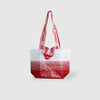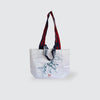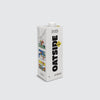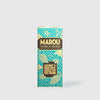
Our Experiences With The Peak Water Jug
Singapore’s tap water is moderately soft and safe to drink directly. It is possible to brew decent coffees without filter as well. When we received the Peak, our team did a little activity to experience the effects of the Peak Water.
Water analysisWe tested the tap water with the provided test stripe. Results showed that our tap water was relatively low, and we only needed to filter our water via the Peak on setting 2.
We first took pH, hardness and TDS readings on 3 different water sources - brew bar (BB), unfiltered water, tap water filtered with Peak. Hardness and TDS levels dropped significantly after the tap water was filtered via the Peak, and the numbers were similar to BB. pH levels remained at 7 (neutral) throughout.
Taste testFurther tests
We were also inspired by James Hoffman where in his video, his comparisons included coffees with different processing methods. We then conducted a second test consisting of only tap water and tap water filtered with Peak Water. We also changed our coffees to an Ethiopian natural and Kenyan full-washed.
Interestingly, the difference in quality was more obvious with the Kenyan than the Ethiopian. With the Peak water, the Kenyan was distinctively juicer - with a medium to medium-high intensity and having a lively quality. The Kenyan brewed with tap water was lacking in flavour clarity as well.
As the coffees cooled down more, the Ethiopian with tap water began to lose structure. The cup brewed with Peak Water had a smoother and cleaner mouthfeel while the cup brewed with tap water had lighter body with some dry aftertaste. The flavour experience was also shorter with the tap water than with the Peak Water.
LimitationsOur experiences seemed to suggest that the Peak Water is very useful in highlighting a coffee’s acidity and also tactility. However all these are very simple exercises and basic findings. There are still a lot more variables that have yet to be explored.
Cupping is merely a method to compare coffees to reduce variability and calibration errors. Paired with different brewing devices and different coffees, there is still a wide range of outcomes that could happen and for the Peak to perform differently. Furthermore, in this initial testing, we’ve yet to taste the outcomes where we filter our tap water on the other settings available.
Overview
Overall, we feel that you could still get decent coffees brewed with regular tap water, however it is still very much subjected to your location and water source. The Peak Water is definitely to go for if you’re finding your home brews to be tasting heavy and dull.








